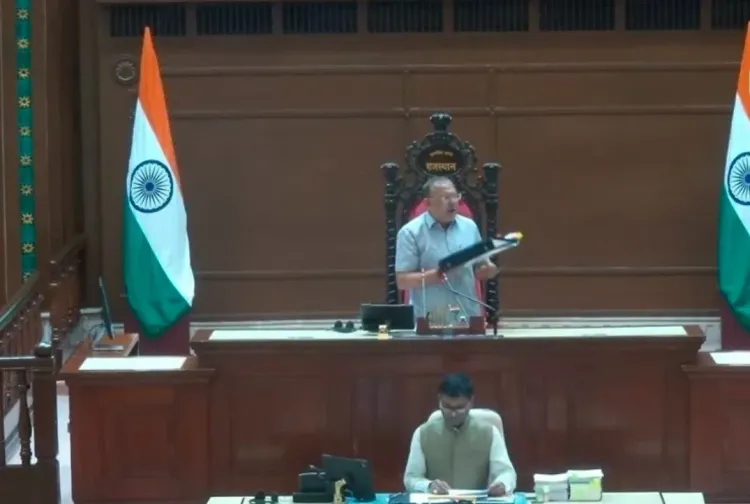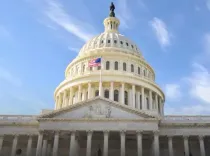Did the Rajasthan government really pass the Coaching Institute Controlled and Regulation Bill 2025?

Synopsis
Key Takeaways
- The bill regulates coaching institutes to protect students.
- Fines for non-compliance range from Rs 50,000 to Rs 2 lakh.
- 24-hour call centres will be established for student grievances.
- Critics raise concerns about bureaucratic control and lack of provisions for younger students.
- This legislation reflects the ongoing struggle between educational reform and industry interests.
Jaipur, Sep 3 (NationPress) In a session marked by intense discussions and protests, the Rajasthan Assembly approved the Rajasthan Coaching Institute Controlled and Regulation Bill 2025 on Wednesday.
The legislation stipulates that coaching centres can face cancellation of their registration for arbitrary fee collection, with penalties ranging from Rs 50,000 to Rs 2 Lakh for non-compliance.
Deputy Chief Minister Premchand Bairwa asserted that this bill aims to hold coaching centres accountable and safeguard students' interests.
According to the new rules, coaching institutes are prohibited from demanding lump sum fees in advance. Should a student decide to discontinue their studies, both tuition and hostel fees must be refunded.
Institutes enrolling more than 100 students are mandated to register with the district committee, which will wield powers akin to a civil court.
The bill introduces stringent penalties for infractions, with a fine of Rs 50,000 for the first offence and escalating to Rs 2 lakh for subsequent violations.
In instances of arbitrary fee collection or repeated breaches of regulations, an institute's registration could be revoked, and its assets may be seized. To resolve student grievances, 24-hour call centres will be established in each district, overseen by a committee led by the Collector, including the SP, CMHO, education officials, and ADM to monitor coaching centres and address complaints.
At the state level, the Rajasthan Coaching Centre Authority will be created under the Higher Education Secretary, comprising officials from various departments along with representatives from coaching institutes, parents, and psychologists, according to Bairwa. However, the opposition has voiced strong criticisms against the bill.
Leader of Opposition Tika Ram Jully raised concerns about the absence of provisions to prevent coaching for children under 16, accusing the government of reducing penalties to benefit the coaching sector instead of tackling the alarming rise in student suicides.
Independent MLA Ravindra Singh Bhati claimed there is a “loot in the name of fees,” arguing that the bill lacks an effective mechanism to control fee structures. He highlighted that no public representatives are included in the committees, leading to potential bureaucratic dominance.
Congress MLA Harish Chaudhary criticized the focus on protecting Kota’s lucrative coaching industry, asserting that true reforms are necessary to genuinely protect students from the pressures that can ruin their lives.
Chaudhary warned that while influential interests are being safeguarded, the state’s genuine issues are being overlooked, adding, “Save this Rajasthan. When history is written, we will all be counted among those who destroyed it.”
Former minister and senior Congress MLA Shanti Dhariwal expressed worries that the bill would only increase bureaucratic control, emphasizing that the regulatory committees are officer-dominated, which could undermine accountability.
Dhariwal also pointed out that the bill does not establish a clear mechanism to prevent student suicides, which is the central issue behind the call for regulation.
However, the government contends that this new legislation will regulate coaching centres, thwart exploitation, and deliver justice to the students of Rajasthan.
Given that Kota is a focal point of the nation’s coaching industry and the growing concerns around student pressure and suicides, the passage of this bill represents a significant step for the state.










